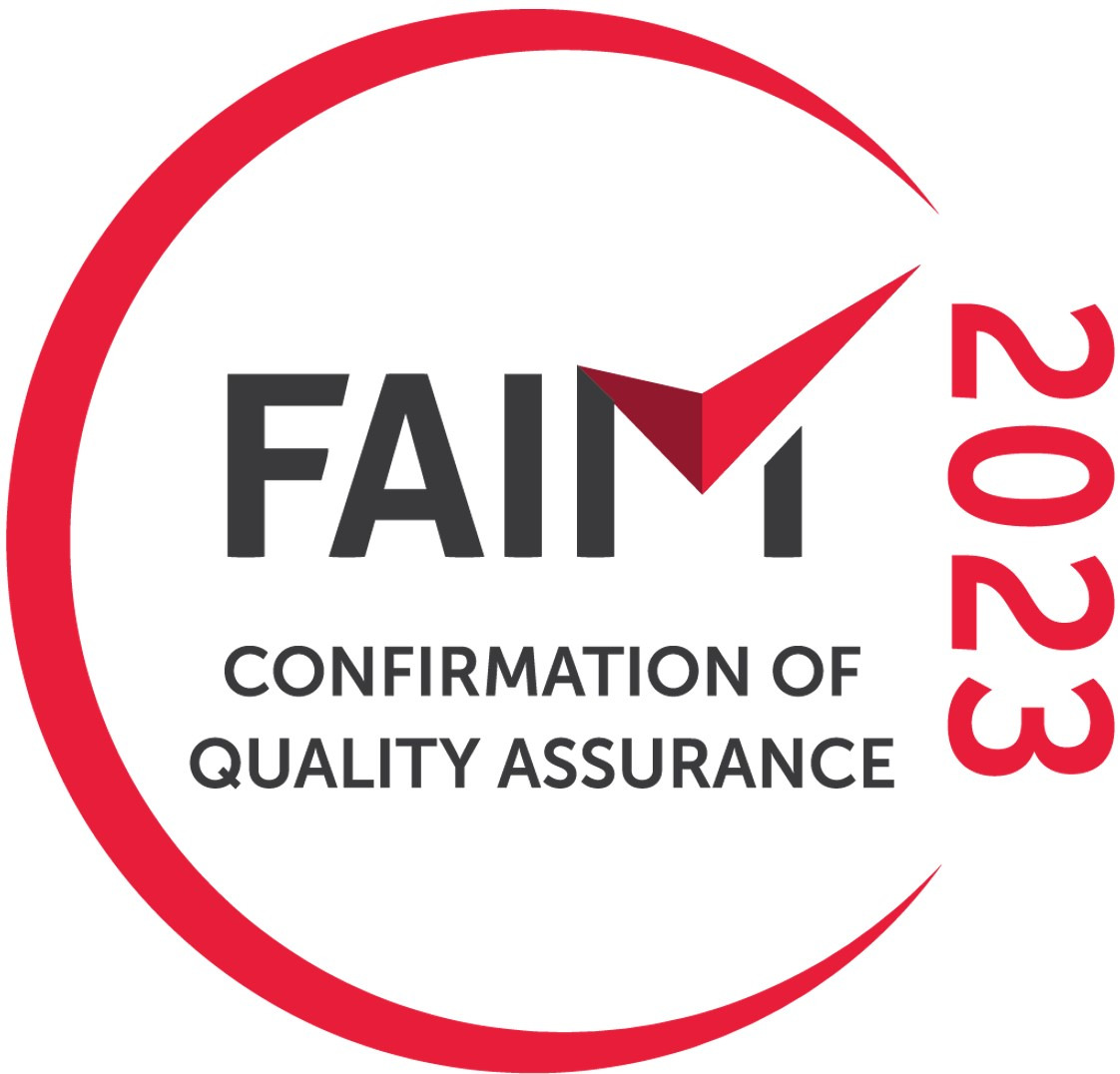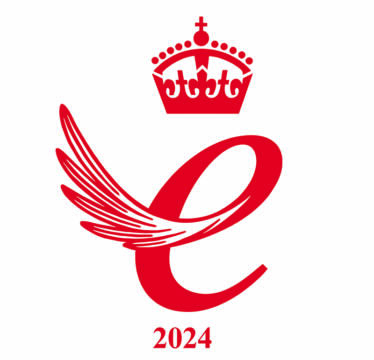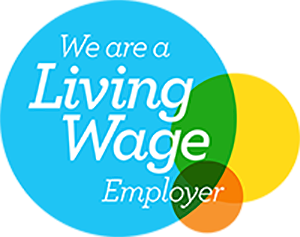New Zealand is a popular choice for families looking to move abroad for a new ‘down under’ lifestyle. With years of experience in removals and shipping to New Zealand, we’ve got all the information you need if you’re thinking of making the move. Our Moving to New Zealand guide covers everything you need to know about moving to, and living in, New Zealand.
We cover all you need to know on how to move to New Zealand from a logistics perspective, talking through visa applications, removals services, localised property markets, where to live in New Zealand and more. Then, we cover everything you need to know about local New Zealand culture, geography, and the pros and cons of moving down under, so you’ll have all the information you need to move to New Zealand.
Moving to New Zealand guide
New Zealand is a popular choice for Brits looking to move to New Zealand for work or family reasons. For this, we have put together a full breakdown New Zealand guide of everything you’ll need to know about moving to New Zealand – including some fun facts, visa necessities and how to find the perfect school. We will also cover what Mistakes To Avoid When Moving To New Zealand.
An introduction to New Zealand
Let’s start with the basics. New Zealand, also known as Aotearoa in the native Māori language, is an island country located in the South Pacific Ocean, in Polynesia. New Zealand is divided into two main islands – the North and South Islands – with the Cook Strait running between. The Cook Strait is the name given to the water that runs between the North and South Islands of New Zealand, connecting the Tasman Sea on the Northwest to the South Pacific Ocean on the southeast. The Cook Strait runs next to New Zealand’s capital city, Wellington.
What is New Zealand’s closest neighbour?
New Zealand’s closest neighbouring country is Australia, which lies roughly 1600 kilometres to the north-west of the island nation. Other neighbouring countries of New Zealand include Vanuatu, Fiji and Tonga.
How many people live in New Zealand?
New Zealand has a population of just over 5 million. Though the area of New Zealand is just slightly bigger than the UK, with an area of 268,021km2 compared to the UK’s 243,610km2, its population is much smaller. New Zealand’s population of roughly 5 million is over seven times smaller than the UK, which has a population of over 67 million.
Time Zones in New Zealand
There are two time zones which operate in New Zealand: New Zealand Standard Time and Chatham Standard Time. The main North and South Islands use New Zealand Standard Time, which is 12 hours ahead of GMT, or Greenwich Mean Time. Chatham, which is a small, offshore island, uses Chatham Standard Time, which is 12 hours and 45 minutes ahead of the UK’s GMT.
Moving to New Zealand from the UK – things you need to know
Transport options in New Zealand
If you aren’t planning on having a car when in New Zealand, never to worry buses are one of the main and most popular modes of public transport, there are also trains. If you plan on going on more of an adventure, you can travel between the islands by hopping on a ferry. Many passenger and vehicle ferries offer services between the North, South and other islands.
Custom Regulations going to and from New Zealand
What items are not allowed into New Zealand? Although some of these may seem obvious and are something you would unlikely be traveling with, it is worth checking the full list on our New Zealand Customs Guide, so you won’t get caught by surprise by customs.
- Objectionable material that is contained on items like videotapes, films, records, CD-ROMs and in publications
- Weapons i.e., flick knives, butterfly knives, swordsticks, knuckle-dusters
- Any weapon which is disguised as something else
- Equipment for using cannabis or methamphetamine
- Anything which you’re planning to use in a crime.
Some items are considered risky items by New Zealand’s customs and must be declared when entering the country, if these are not declared there is a risk of being fined and or prosecuted. These items are a lot more common for most travellers and include things like:
- food
- fruit, vegetables, meat, fish, poultry, honey, ingredients used in cooking, and all dairy products
- alive or dead plants and seeds
- wooden items
- alive or dead animals
- alive or dead animal products
- traditional/herbal medicines
- any shoes, sports or outdoor equipment you’ve used. Particularly if the equipment
In some cases, you will need a permit to transport certain goods to New Zealand, although most of these items are that common, this is something you will need to organise ahead of time. You are risking of the items being confiscated if not, these are things like:
- ivory in any form, including jewellery, and carvings
- tortoise or sea turtle shell jewellery, and ornaments
- meat or food derived from whales, dolphins, rare crane, and pheasants, or sea turtles
- medicines containing musk, or rhinoceros or tiger derivatives such as ground horn or bone
- carvings or other things made from whalebone or bone from other marine mammals
- cat skins
- trophies of sea turtles, all big cats, rare reptiles, cranes, pheasants, bears, antelope, and deer
- live species, including pet eagles, hawks, owls and parrots, many cacti, orchids, cycads, and cyclamens
- carnivorous plants.
Shipping Costs to New Zealand
When moving to New Zealand we recommend having a priority of things you would like to take with you, our guide on Deciding What to Take With You may help. Below we have attached an indicator as to rough pricing when traveling with different loads. We recommend reading our Guide To Comparing International Removal Quotes Fairly.
| 3 – 5 Boxes | Groupage | £120 – £215 |
| Part House | Shared Container | £565 – £565 |
| 3 Bed House | 20 ft Container | £5100-£7100 |
| 4 Bed House + Car | 40 ft Container | £8500-£11500 |
Moving to New Zealand with pets

Pets are like family to most people, and they are not something anyone wants to leave behind, so when moving to New Zealand it is important to check whether you will need a permit when moving with your furry friend. When moving to New Zealand from the UK, a permit will be required. This rule applies to the most commons pets, cats and dogs. However here are the rules on some other household pets:
- chinchillas — from the United Kingdom (UK) only
- guinea pigs — from Australia only
- rabbits — from Australia only
This isn’t to say more unique animals and pets aren’t allowed however New Zealand does have a list of prohibited animals, this is something you will need to consider if you have something more exotic, for example:
- live birds
- ferrets
- guinea pigs (except from Australia)
- mice and rats (except laboratory animals)
- snakes and other reptiles (except for zoos).
Some dog breeds are also prohibited from entering New Zealand unless they are a guide or hearing dog, a registered companion dog and dog that are registered under the Dog Control Act 1996. These breeds include:
- American Pit Bull Terriers
- Brazilian Fila
- Dogo Argentino
- Japanese Tosa
- Perro de Presa Canario.
If you want to find out more information about moving your pets abroad. You can read our Guide to Moving with Pets.
Moving a vehicle to New Zealand
Importing cars to New Zealand has never been easier. Often shipping your car to New Zealand can be considered a “no brainer”, this is due to the compliance exemptions and goods and service tax exemptions available. However, before committing fully to shipping out your car, you need to consider the total cost. The best way to calculate the rough total landed cost is with this check list.
- Shipping quote, most companies will ship into at least one if not all these main ports Auckland, Christchurch (Lyttelton), Dunedin (Port Chalmers), Nelson and Wellington. (Don’t forget to factor in travel from the chosen port to your destination.
- Marine insurance
- You must consider all duties, taxes and Government Charges
- Further costs due to quarantine cleaning
- On road costs including registration and vehicle compliance
Entry Requirements to Live and Work in New Zealand
If you’re planning to move to New Zealand for work, then you’ll need a visa. There are number of different visa options available to you, each with its own different conditions. In general, a permanent Visa won’t be issued to you if you reside outside of New Zealand, you will most likely need to begin with a temporary visa before applying for one of the below options.
Essential Skills Work Visa
If your occupation is listed on the long-term skill shortage list, and you have been offered a job in that field, you can come and work in New Zealand for up to 30 months and apply for residency after 2 years.
Work Visa based on Immediate Skill Shortage List
Being granted this visa means that there are no New Zealanders who are available to do the job at the moment. This is a temporary visa and doesn’t necessarily mean you will be able to apply for residency.
Canterbury Skill Shortage List
This visa was introduced following the earthquakes of 2010 and 2011 in Canterbury. The aim is to encourage construction workers and engineers to help rebuild the city. You may be able to apply for residency with this visa.
Skilled Migrant Visa
If your occupation is on the Skilled Occupations list and you are under 55, you are eligible to apply for this visa. For this visa, you must meet the English language requirement, have a medical and meet the character requirements. The occupations are constantly changing, so check online for an up-to-date list before you apply.
Work Visa based on New Zealand Qualification
If you have a New Zealand qualification which was completed in New Zealand, you are eligible to apply for a work visa. Should the New Zealand government find your qualification satisfactory, you will be granted a work visa which will allow you to work in any job in any field.
Moving to New Zealand with children

Family visas/Student visas
If you are a work or student visa applicant, you may be able to bring your children with you based on your relationship. All student visas –generally speaking, for 5-year olds and over– must be separate applications.
The partner of a student work visa allows partners of student visa holders, to work in New Zealand. This is under the condition of their partner studying in New Zealand,
State schools are free for New Zealanders, but foreign nationals will have to obtain a student’s Visa and pay a fee. However, these are generally not too high.
What is the education system like in New Zealand?
Education is compulsory between the ages of six and sixteen and comes in three tiers – primary, secondary and tertiary. Like the UK most children stay on at school beyond 16 and move onto years 12 and 13. It is possible to home-school children, but for this you’ll need a special certificate of exemption.
New Zealand has many of the same types of schools that we have in the UK:
- State schools
- Private schools
- Faith schools
- Specialist international schools
State schools are the most attended schools in New Zealand, and generally you will be expected to attend the state school closest to you. This is very important to consider when choosing where to live you as you should consider the reputation of the local schools.
The top 5 universities in New Zealand and their rankings from the QS World University Rankings 2022.
The top five include:
- The University of Auckland (85th)
- University of Otago (194th)
- Victoria University of Wellington (236th)
- University of Canterbury (258th)
- Massey University (284th).
Can you apply for student loan in New Zealand?
In the short answer generally, no it is unlikely you will get a student loan. In order to be eligible for a Student Allowance or Student Loan one of the following must apply:
- A New Zealand citizen or
- A New Zealand resident who has been living in New Zealand for at least 3 years or
- Living in New Zealand as a refugee or protected person.
The quality of education in New Zealand
When your child completes years 12 and 13, they will receive the National Certificate of Educational Achievement (NCEA). It’s an internationally regarded qualification and will be recognised by universities around the world. New Zealand’s is said to have one of the best education systems in the world, however like always this statistic varies on region and it is always best to do research into the schools in the area before making your decision.
New Zealand’s education system focus’ on 8 key areas:
- English
- The arts
- Health and physical education
- Languages
- Mathematics and statistics
- Science
- Social sciences
- Technology.
Higher education is not limited to universities in New Zealand, your child will also have the choice to pursue their future careers straight from school. They can do this with any of these three options, vocational training, an apprenticeship or ‘on-the-job’ training.
New Zealand education system compared to the UKs
One important thing to note is that unlike the UK where the school year runs from September to June, a New Zealand school year runs from January to December. If your child decides to move onto years 12 and 13 when in New Zealand, they will receive the New Zealand equivalent of an A Level – the National Certificate of Educational Achievement (NCEA).
State Schools are backed by the Government and are free to people from New Zealand. However, unlike the UK foreigners will have to pay a fee which contributes towards the national education system.
Working full time? Like the UK, New Zealand has many options for before and after school care in New Zealand, as well as great programmes for children during the holidays.
Be sure to check out our guide to Moving Overseas with Kids .
Working in New Zealand

New Zealand’s Job Market
If you’ve set your sights on moving to New Zealand, you may be looking for a job in the country. The good news here is that New Zealand’s job market isn’t too competitive. Though New Zealand’s unemployment rate is slightly lower than in the UK, skills shortages and low population mean that job vacancies are currently at an all-time high. As mentioned above regarding skills shortage visas, if you work in a particular role or industry that is in high demand, it’s unlikely you’ll have much trouble finding employment in New Zealand.
Minimum Wage in New Zealand
The minimum wage for adults in New Zealand is currently $21.20NZD, which converts to roughly £11.04, higher than the minimum wage in the United Kingdom.
The minimum wage applies to workers in New Zealand from the age of 16. There is, however, a starting out wage, $16.96NZD per hour, which applies to:
- Employees aged 16 or 17 who haven’t done six months of continuous employment service (what would be known in the UK as a probationary period) with their current employer. After six months with one employer, they are not starting-out workers and must be paid the adult minimum wage
- Employees aged 18 or 19 who have been paid one or more social security benefits for six months or more, and who haven’t completed six months’ continuous employment with an employer since they started being paid a benefit.
Income Tax in New Zealand
The income tax you’ll pay in New Zealand will depend on your salary, but in general, you can expect to pay slightly less in income tax than you would in the UK. New Zealand’s level of income tax is less than the OECD average, and has a greater proportion of its taxes collected by central government.
H3: Work Benefits in New Zealand
Some of the guaranteed work benefits and entitlements you can expect if you are employed in New Zealand are:
- A minimum of four weeks paid annual leave, with the ability to request up to one week of your annual leave to be cashed
- 11 public holidays, where employees are entitled to a paid day off
- 10 days of paid sick leave after six months of continuous service, and a further 10 days for every year of service to follow
Life for expats in New Zealand
Is it easy for UK expats to assimilate into NZ culture?
Defined an expat is a person who lives outside their native country. Living in New Zealand is an experience, and many describe it as a new way of life, compared to the fast-paced nature of higher populated countries. While New Zealand is reportedly not the cheapest place for expats to live, the rich history, culture and environment make up for this. You will enjoy a high quality of life in New Zealand as they ranked number 2 in terms of living in an Expat Explorer Survey conducted in 2021.
New Zealand are famous for their diverse culture and welcoming nature. New Zealand is a highly progressive society and New Zealand is currently in the process of becoming the first country to be fully powered and rely on renewable energy.
Healthcare – Is healthcare provided by the state?
Healthcare is provided by the state for New Zealand citizens and as an expat you will need health insurance when you first move to New Zealand. Once you have residency status in New Zealand or hold a hold a work visa valid for at least two years, you may qualify for free or low-cost healthcare.
Vaccines needed for New Zealand
All travellers going to New Zealand should ensure they are up to date with the following vaccines:
- Diphtheria
- Tetanus
- Polio
- Measles
- Mumps
Some travellers are advised, and must take their own judgement on getting these vaccines before moving to New Zealand:
- Rabies
- Japanese Encephalitis
- Hepatitis B
- Link out to blogs onsite about life in NZ
Choosing an area of New Zealand

So now you’re settled on moving to New Zealand, you need to decide which area of the country you’d like to settle down in. First, we’ll take a look at the differences between the main two islands.
Which is better – North or South Island?
Though the two islands share many cultural similarities, there are equally many differences that you should pay mind to when deciding where in New Zealand to live. The North Island, for example, is much smaller than the South in land surface area, but is larger in population
Close to 80% of New Zealand’s total population resides in the North Island, within major cities such as Auckland, Wellington, Napier-Hastings and Hamilton. The Southern Island is much more sparsely populated with cities such as Christchurch, Nelson and Dunedin. Cost of living is generally higher in the North Island than it is in the South, but the higher average salaries balance the discrepancy out.
The North Island is much more urban in feel, given the denser population, and the South Island is more rural by comparison, having many smaller cities and towns whose economies are dependent on agriculture and fishing.
The weather is also very different depending on which island you’re on. The Northernmost parts of the North Island are much warmer in climate, with subtropical temperatures and plenty of sunny beaches. The South Island, by comparison, is much more temperate, and its landscape is characterised more by mountains and fjords than sandy beaches.
Living in Wellington, New Zealand
Wellington is the capital city of New Zealand, and is situated on the North Island. It is the third-largest city in the country, behind Christchurch and Auckland. Weather in Wellington is generally warm and sunny, getting cooler towards winter.
Living in Auckland, New Zealand
Auckland is the largest city in New Zealand by population and can be found on the Northernmost side of the North Island. Auckland has a subtropical climate, with hot, humid summers. Auckland has the highest property and rental prices in the country, but is also a hub of employment and economic growth, offering competitive salaries which balance out the high cost of living.
Living in Christchurch, New Zealand
Christchurch is the oldest and second-largest city in New Zealand, found on the South Island. The cost of living is generally lower than in Auckland, while the city boasts trendy suburban areas and tranquil beach-side neighbourhoods, meaning there’ll be something for everyone.
Property in New Zealand
The New Zealand Rental Market
The Average rent in New Zealand sits around 400 NZD (roughly converting to 207 GBP) a week, this would be for a small property with one to two bedrooms. Renting a slightly bigger property would add at least and extra 100 NZD with the benefit of it coming with three to four bedrooms, on average this comes in at 530 NZD a week (274 GBP). In New Zealand it is important to keep in mind that rent is calculated weekly, working out the monthly rent from this is the best way to consider the value of the rent be advertised. These numbers will vary depending on the area you are looking for in.
The New Zealand Property Market
House prices in New Zealand are currently experiencing the fastest drop in value since the global financial crisis, but many first-time buyers will remain locked out of home ownership due to an inflated market, the cost-of-living crisis and rising interest rates. This is something to consider when buying property in New Zealand, it is reported to have a higher cost of living than the UK.
There are a variety of lenders, like the UK, willing to provide mortgage loans, including building societies, finance companies and specialist home loan companies. Although it is possible many banks and mortgage advisers are unlikely to provide a mortgage to a non-New Zealand citizen wanting to obtain a mortgage on a property. This leads to the best option being buying a property outright or renting.
Cost of living in New Zealand

Cost of living in New Zealand vs UK
As is the case in any country, the cost of living will vary depending on where you are. However, in general, you can expect the cost of living to be slightly higher in New Zealand than it is across the UK. This is largely down to the location and size of the country; being a relatively remote island nation, shipping goods to New Zealand can be expensive, and the small population means businesses rarely grow large enough for the cost efficiencies afforded by being larger scale.
New Zealand Currency
New Zealand uses the New Zealand Dollar as its form of currency. As of July 2022, 1 New Zealand Dollar equates to 0.52 Pounds sterling. Check out our International Money Transfers Guide to help keep your money safe.
Cost of Living in Auckland
It’s estimated that the average single person living in Auckland, the most populous urban area in New Zealand, would need just over $1600NZ, or just over £800 to live on per month, exclusive of rent.
Cost of living in Auckland is, in general, higher than it would be anywhere else in New Zealand, and prices will differ depending on how close to the city centre you are.
Cost of Living in Wellington
Living in Wellington is slightly cheaper than Auckland. It’s estimated that the average single person living in Wellington, the capital city of New Zealand, would need just over $1450NZ, or roughly £750 to support themselves, exclusive of rent.
Cost of Living in Christchurch
Christchurch, another popular city in New Zealand, is estimated to be even cheaper than both Auckland and Wellington as far as living costs. It’s estimated that the average single person living in Christchurch would need just over $1350NZ, which is just shy of £700, to support themselves, exclusive of rent.
Affordable Places to Live in New Zealand
Unsurprisingly, the most affordable areas to live in New Zealand are those with the lowest populations. Christchurch, as mentioned above, is the most affordable major city, but there are plenty of more affordable options if you’re looking to live somewhere more suburban.
Cost of Living in Dunedin
Dunedin is the second-largest city in the South Island after Christchurch, and boasts a lower cost of living. Rent prices are significantly lower than those in Christchurch, with a thriving local economy and many family friendly suburbs. It’s worth noting, though, that North Dunedin’s population is primarily made up of students, so consider other areas if you’re hoping to move with your family into a quieter, more residential suburb.
Cost of Living in Rotorua
Rotorua, a small city in the North Island of New Zealand, is heralded for low rent prices and low cost of living. With an economy supported largely by geothermal energy development and agricultural/forestry business, Rotorua offers a quiet, suburban lifestyle away from the busy cities.
Cost of Living in Hamilton
Hamilton is New Zealand’s largest inland city, just a stone’s throw from the cities of Rotorua and Auckland, as well as a number of popular tourist spots, including Hobbiton. Hamilton has a much lower cost of living than other major cities. That said, the city’s economy is rapidly growing on account of its business sector, with many believing Hamilton is set to become a major city in the future.
Opening a bank account in New Zealand
Opening a bank account in New Zealand follows the same process as it is in the UK. It’s a very easy process to follow, and you will just need to ensure that you have the correct paperwork – the bank you choose will inform you of what they need.
You may want to keep some of your UK bank accounts if you move to New Zealand, which shouldn’t be a problem so long as you check with any requirements with your bank. However, if you’re relocating to New Zealand long-term or permanently, then you will want to open a bank account with a domestic bank as well.
There are a number of banking providers operating in New Zealand, some of the most popular being ASB, Bank of New Zealand, Westpac and ANZ. Research providers thoroughly before making a decision on which is right for you.
How much do household bills cost in New Zealand?
Utility Bills in New Zealand
Though figures for basic utility bills, such as water, gas and electric, will vary depending on your usage, you can expect to pay roughly 40% less on your monthly expenses in New Zealand than you would living in the UK.
Mobile Phone Contracts and WiFi in New Zealand
Internet, particularly in the use case of mobile data, is much more expensive in New Zealand than it is in the UK. This is largely down to the size of the country; while New Zealand has a similar landmass to that of the UK, its population is much smaller. Lighter population density and a smaller market means that mobile data infrastructure in New Zealand can’t achieve the same large-scale cost efficiency as it does in the UK. In general, mobile phone users in New Zealand will pay over 70% more for mobile data than users in the UK
WiFi/Cable is still more expensive than it is in the UK, but not by as large a margin; you can expect to pay roughly 40% more for your WiFi and internet at home than you would in the UK.
Cost of Public Transport in New Zealand
Public transport in New Zealand is generally regarded as excellent. Buses are the main mode of public transport, and connect small cities to larger urban areas. Even better, you can expect to spend much less on public transport in New Zealand than you would in urban areas of the UK such as London.
Public transport fares can be as low as NZ$0.50, or roughly £0.26, making New Zealand’s public transport system incredibly affordable.
Price of Petrol in New Zealand
Petrol prices are currently in a state of flux, but ordinarily, petrol is slightly cheaper in New Zealand than it is in the UK.
Though prices are generally lower, New Zealand generally gets a worse deal given the proportion of income spent on fuel. New Zealand’s population is one of the highest consumers of fuel worldwide, and it’s worth bearing in mind that the average kiwi spending a much higher percentage of their income on fuel than they would in the UK.
Other Key Points on the Cost of Living in New Zealand
Though New Zealand is far removed from the UK in a geographical sense, there are certain customs within the culture that are similar to the UK. For example, unlike in the United States, tipping service staff is not customary or expected, so you won’t be noticing an increase in costs in this regard.
Moreover, while consumption tax is applied to goods in New Zealand stores (usually at a rate of 15%), this is reflected in the price, unlike in the States.
New Zealand Culture

Knowing the practical information about moving to New Zealand is one thing, but it’s equally important to understand more about the country’s culture, especially if you’re considering moving permanently. Adapting to the New Culture is key. New Zealand is a fascinating country with a rich culture and history.
Māori Culture in New Zealand
Māori culture refers to the traditions, lifestyles and beliefs of the indigenous Māori people of New Zealand. Within the Māori language, as well as throughout the rest of New Zealand, the word Māoritanga is used to refer to the culture and practice of the Māori people.
Māori History
It is widely understood that the ancestors of the Māori people settled in New Zealand before the year 1300, travelling from neighbouring Pacific Islands on canoes. European settlers and missionaries who came to New Zealand in the 1800s bought or confiscated land from the indigenous Māori people, but the 20th century saw a revival of the culture. It is now estimated that there are around 875,000 Māori people living in New Zealand today, accounting for nearly 1/5 of the country’s population.
Māori Language
The Māori language is known as te reo Māori, and is usually shortened to te reo. Following the settlement of European missionaries in New Zealand, it was thought that Māori language might disappear. However, in the 1980s, the New Zealand government launched an initiative to teach te reo in schools, and it later became recognised as an official language of the country. It has been reported that roughly 55% of Māori adults in New Zealand have some knowledge of the language, with over half of these using the language at home with their families.
Māori traditions
Perhaps one of the most recognisable Māori traditions to those outside New Zealand is the haka. The haka is an intimidating Māori battlefield dance, passed down through generations, which symbolises strength and unity. New Zealand’s leading rugby union team, the All Blacks, performs the haka in the middle of the pitch before every match.
Other Māori customs are still alive and well in New Zealand today, with the traditions of weaving and carving playing a huge role in how art is perceived in New Zealand. Moko, or traditional Māori tattooing, is also kept alive by the indigenous citizens of New Zealand.
Women’s Rights in New Zealand
New Zealand is generally regarded as one of the best countries to live in for women. From a political perspective, women are much more highly regarded than they are in other countries; New Zealand has twice been run by women, and women have been able to vote since 1893.
Education is another area in which New Zealand excels on behalf of women. More than half of the students enrolled in tertiary (college and university) education are female. Kiwi women are at least as educated as their male counterparts – in fact, 87% of Kiwi women complete the highest level of high school, compared to 67% of men.
Generally, women are well treated and respected in New Zealand. Discrimination on the basis of gender is illegal. Open harassment is considered very unusual, and in most places it’s safe for women to walk the streets alone, even at night.
Politics in New Zealand
New Zealand operates on a multi-party, representative, democratic system, with its dominant party historically being the Labour Party. The formation of minority and coalition governments is also fairly common.
New Zealand is also part of the Commonwealth Nations, so has a constitutional monarchy with Queen Elizabeth II, the Queen of England, as its head of state.
New Zealand’s current government is centre-left leaning, and is headed by Prime Minister Jacinda Ardern, the second female PM of the country.
Public Holidays in New Zealand
The public holidays celebrated in New Zealand are as follows:
- New Year’s Day (1st January)
- Day After New Year’s Day (2nd January)
- Waitangi Day (6th February)
- Good Friday
- Easter Monday
- Anzac Day (25th April)
- Queen’s Birthday (7th June)
- Labour Day (fourth Monday of October)
- Christmas Day (25th December)
- Boxing Day (26th December)
Sport in New Zealand
The national sport of New Zealand is rugby union, in which the country has had great success globally. Rugby league, cricket, sailing, football and golf are all incredibly popular in New Zealand.
Pop Culture in New Zealand
Famous Kiwis
Some of the most famous names to have come from New Zealand include Sir Peter Jackson, most widely known for directing the Lord of the Rings and Hobbit trilogies, Ernest Rutherford, a Nobel prize-winning nuclear physicist who was the first person to split the atom, and Lorde, a singer-songwriter best known for her hit single ‘Royals’, released in 2013.
Film and Television
As many will know, the Lord of the Rings and Hobbit films were filmed in New Zealand. You can tour the movie set of Hobbiton, which resides in a small agricultural town called Matamata on the North Island of New Zealand.
Pros and cons of living in New Zealand
To summarise there are many wonderful features to New Zealand that would make it a great place to live, the school system is stand out and is one of the best in the world. They have such a diverse culture with a rich history. New Zealand is reportedly one of the friendliest places with everyone making you feel at home acting neighbourly. New Zealand is also part of the Commonwealth Nations, so has a constitutional monarchy with Queen Elizabeth II, the Queen of England, as its head of state.
Unfortunately, the only con would be the higher cost of living, with the possibility of not being able to secure a mortgage loan, there are ways around this making it still possible to enjoy your life in New Zealand. With its beautiful landscapes and welcoming community, moving to New Zealand seems like a great option. Be sure to check out Moving Overseas Checklist before the big day.
Ready to make the move?
If this guide has inspired you to make the move to New Zealand, why not visit our international removals to New Zealand page or give us a call on 0800 093 2623.















